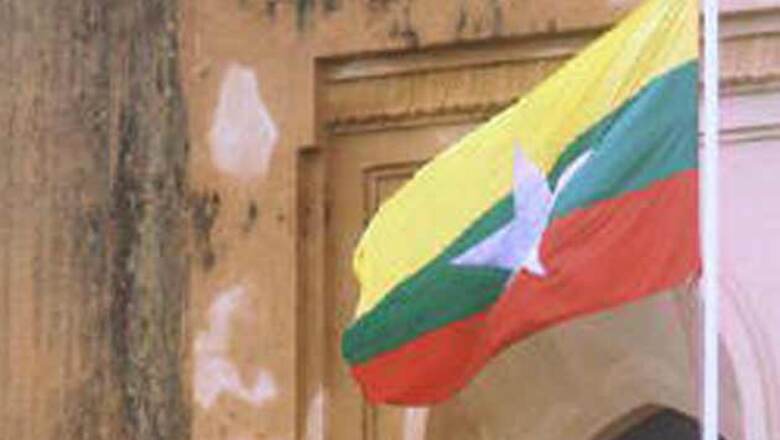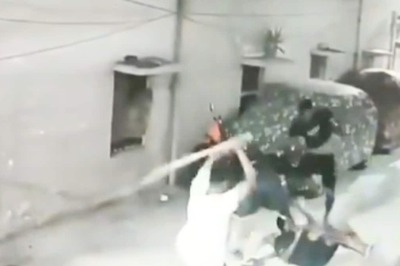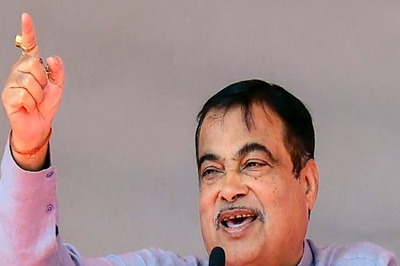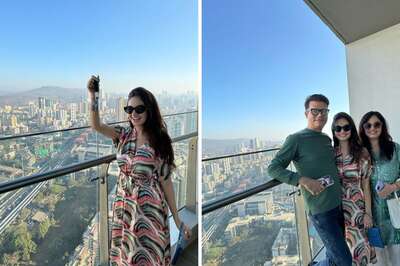
views
Yangon: Fighting between ethnic rebels and government troops rumbled on for a third day on Tuesday as activists warned that the violence, which has sparked a refugee exodus from Myanmar, could escalate in the aftermath of contentious elections.
Clashes at key points along the Thai-Myanmar border since Sunday have sent some 20,000 panicked villagers into Thailand, which already shelters a quarter-million ethnic minority refugees from brutal campaigns by the Myanmar army.
The exodus underlined Myanmar's vulnerability to unrest following the country's first election in two decades on Sunday, which was billed by the ruling junta as a key stage in its self-proclaimed road to democracy. Its political opponents and Western nations have decried the vote as unfair and repressive.
President Barack Obama said Monday it was unacceptable for Myanmar's government to "steal an election" and hold the people's aspirations hostage to the regime's greed and paranoia. U.N. Secretary-General Ban Ki-moon said the voting was not inclusive enough and lacked transparency.
For a third day Tuesday, sporadic gunfire erupted in the morning in the key border town of Myawaddy. Refugees told Thai officials, however, that government forces had retaken the Myanmar border town and that the fighting was likely to end, according to Thai Gov. Samard Loyfar of adjacent Tak province. Gunfire continued further south at the Three Pagoda Pass.
Government spokesman Panitan Wattanayagorn said that some 20,000 refugees had fled into Thailand and authorities would not send them home until it was safe. He said Thailand forces had beefed up security at the border.
By midday, Thai officials at the border declared that the northern area of Myawaddy was safe, eliciting cheers from a crowd of refugees. Hundreds of them began cautiously returning home. Thousands more stayed put in the Thai town of Mae Sot, which is just across a river from Myawaddy.
The area around Mae Sot is already home to some 150,000 ethnic Karen refugees scattered in camps that were first established in the 1980s.
The U.N. and human rights groups have detailed killings, rape, torture, forced labor and burning of villages in Myanmar as the regime campaigns to deny the rebels support from the civilian population.
Myanmar has been ruled by the military near-continuously since 1962, and rebellions by its ethnic minorities predate its independence from Britain in 1948.
Sunday's election was the first in Myanmar, also known as Burma, since a 1990 vote won by pro-democracy leader Aung San Suu Kyi's party, which was barred from taking power and boycotted the new polls. The regime says the election heralds a transition to civilian rule, but junta-backed candidates are virtually certain to dominate the new parliament.
Several human rights groups warned of possible civil war as ethnic groups are pressured by the government to accept a new constitution that offers them little autonomy. Several groups that field potent guerrilla armies refused to take part in the election.
"If the dictatorship goes ahead with plans to attack all armed groups refusing to surrender, today's fighting will be the equivalent of a first small skirmish," said the Burma Campaign UK in a statement.
Only a few results from Sunday's election have been announced, and figures on voter turnout from the election have yet to emerge. State media and the Election Commission reported on Monday that 40 junta-backed candidates won their races for mostly uncontested seats.
The junta-backed Union Solidarity and Development Party was certain to win an overwhelming number of seats. It fielded 1,112 candidates for the 1,159 seats in the two-house national parliament and 14 regional parliaments. The largest anti-government party, the National Democratic Force, contested just 164 spots.
The constitution sets aside 25 percent of parliamentary seats for military appointees.
The NDF said provisional returns it had collected showed it winning 15 seats.
NDF chief Khin Maung Swe accused the USDP of using every possible method to steal the vote, and said it was "sure to win 90 percent if they continue to cheat in such manner."
The NDF is led by breakaway members of the former National League for Democracy of detained Nobel Peace Prize laureate Suu Kyi, who has been locked up in her Yangon villa on and off since 1989. The party was disbanded this year after declining to register.
Suu Kyi's term of house arrest is supposed to expire Saturday, though the junta has kept silent over whether it will grant her freedom.




















Comments
0 comment